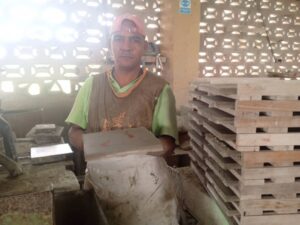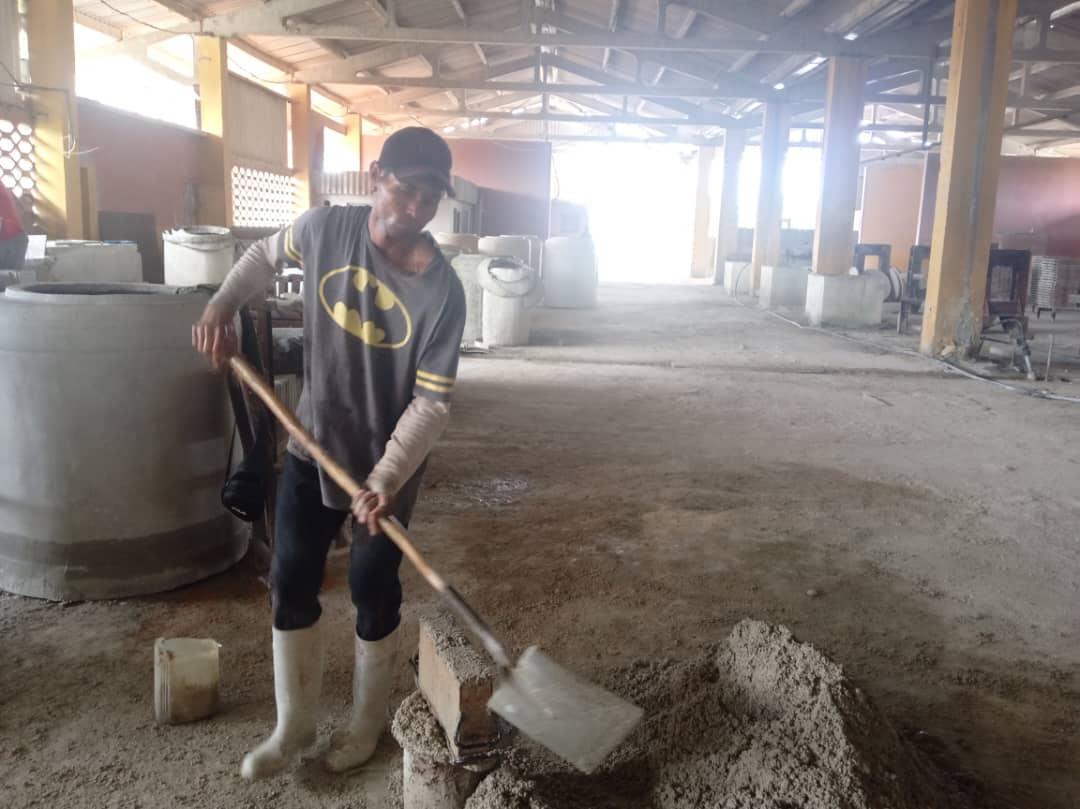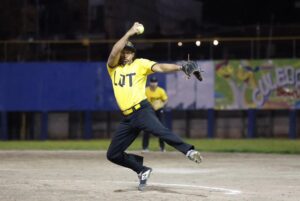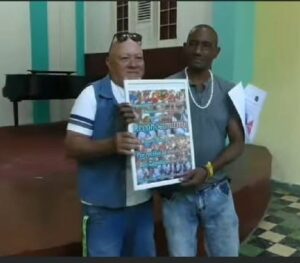Thanks to the ingenuity and perseverance of the collective at the mosaic factory of the Terracar basic business unit, belonging to the provincial construction materials company Avilmat, they are promoting artisanal work as a strategy to guarantee production.
There, each piece is made completely by hand, from mixing the cement to the final polishing of the tiles.
Judel Martín Morejón, the plant manager, explained that all productions of mosaics, tanks, blocks and slabs are done using concrete mixer moulds and presses, so human intervention is essential at every stage of the process. “Everything here bears the hand of man: the mixing of the materials, the blending of the colours and the final finish,” he commented.
Referring to raw materials, the manager indicated that the fundamental one is P350 cement, used for both mosaics and tanks, in addition to coarse mortar intended for blocks and rendering.
Among the most in-demand products are the 800 and 1,200-litre tanks, entirely handmade using traditional techniques of splatter coating, rendering and final polishing.

«The quality of the productions is guaranteed through laboratory tests, where specialised technicians verify the resistance and durability of the materials. “Load tests and controlled samples are carried out to check the solidity of the tank and the mosaic,” specified the manager.
Currently, the factory has 12 workers, whose salary depends directly on the production achieved. Daily, two tanks, one of each type, and between 250 and 300 blocks are produced, with the goal of increasing the figure to 400 units in the coming days.
The production of mosaics, affected by the illness of some tilers, remains at around 37 metres daily.
Martin Morejón also highlighted that the moulds used in the factory were designed and built by the workers themselves, another demonstration of the collective’s innovative spirit. “Everything was made here. I brought the experience I acquired in the ProMAR project and we applied it with good results,” he stated.
In a context of productive challenges and material limitations, the factory demonstrates that inventiveness remains the engine of local development, with the strength of their hands and the will of those who refuse to stop creating.




